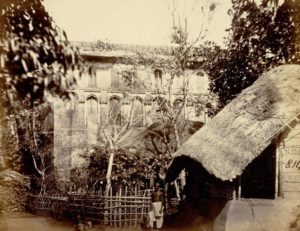In 1611, the East India Company established a cotton factory in India. Beginning in the 18th century and over the next century, large areas of India were annexed by the East India Company. Dissatisfaction with Company rule led to the Indian Rebellion of 1857, after which the provinces of India were directly administered by the British Crown. Due to its productive resources and the size of its commercial market, India became the most valuable possession of the British Empire. In the 19th century, Great Britain sought to protect access to India from its primary commercial rivals Russia and then Germany.
In 1643, the first British factory was established in the Southern Mesopotamian port of Basra. As British trade expanded further inland and up to Mosul, the port of Basra became increasingly important both strategically and economically as it became the gateway for British trade to both Mesopotamia and India.
By the end of the nineteenth century, Germany had become Britain’s chief rival in Mesopotamia. In economic terms, German companies and capital in the Ottoman Empire were expanding at a fast rate and German merchants were increasing their share in the Turkish markets. In 1899 Germany obtained Ottoman permission to construct the final link of the Berlin to Bagdad Railroad . This development caused immense anxiety among British policy makers as it foreshadowed German development of an efficient land route to India, increased participation in the commercial markets of Mesopotamia, as well as access to the potential of Mesopotamian petroleum resources.
